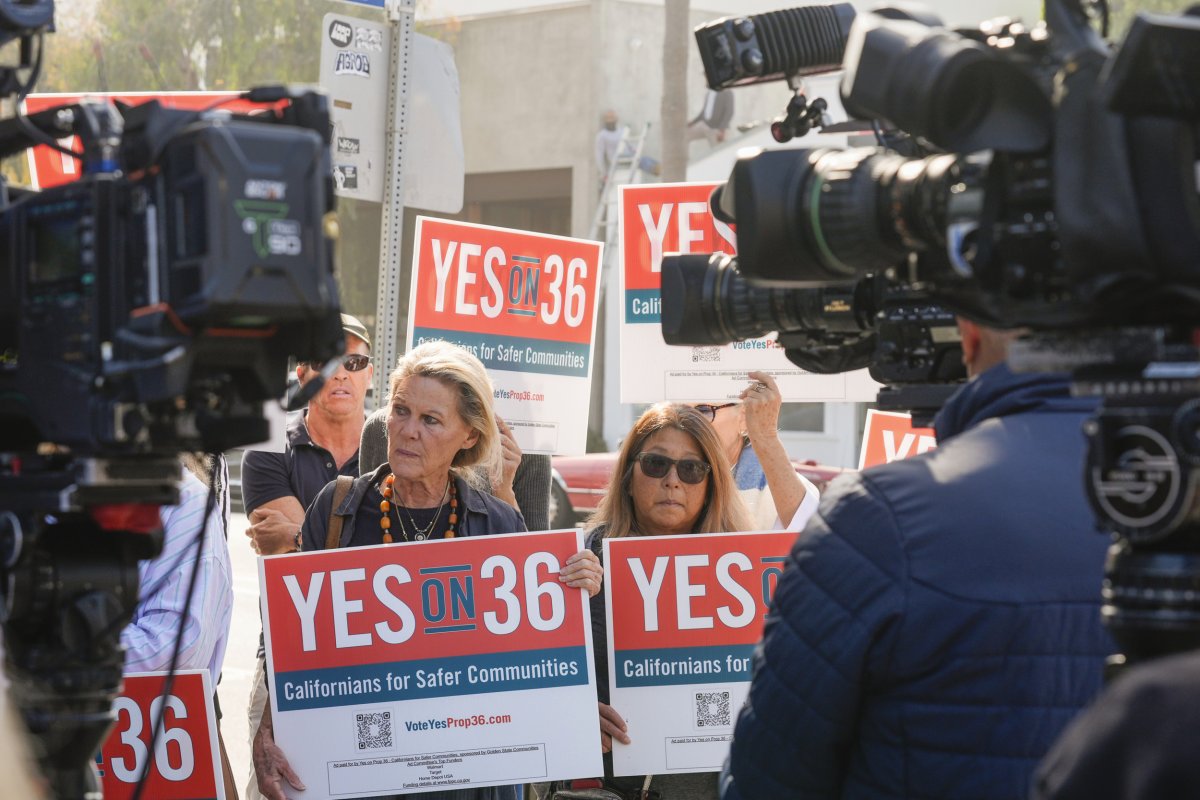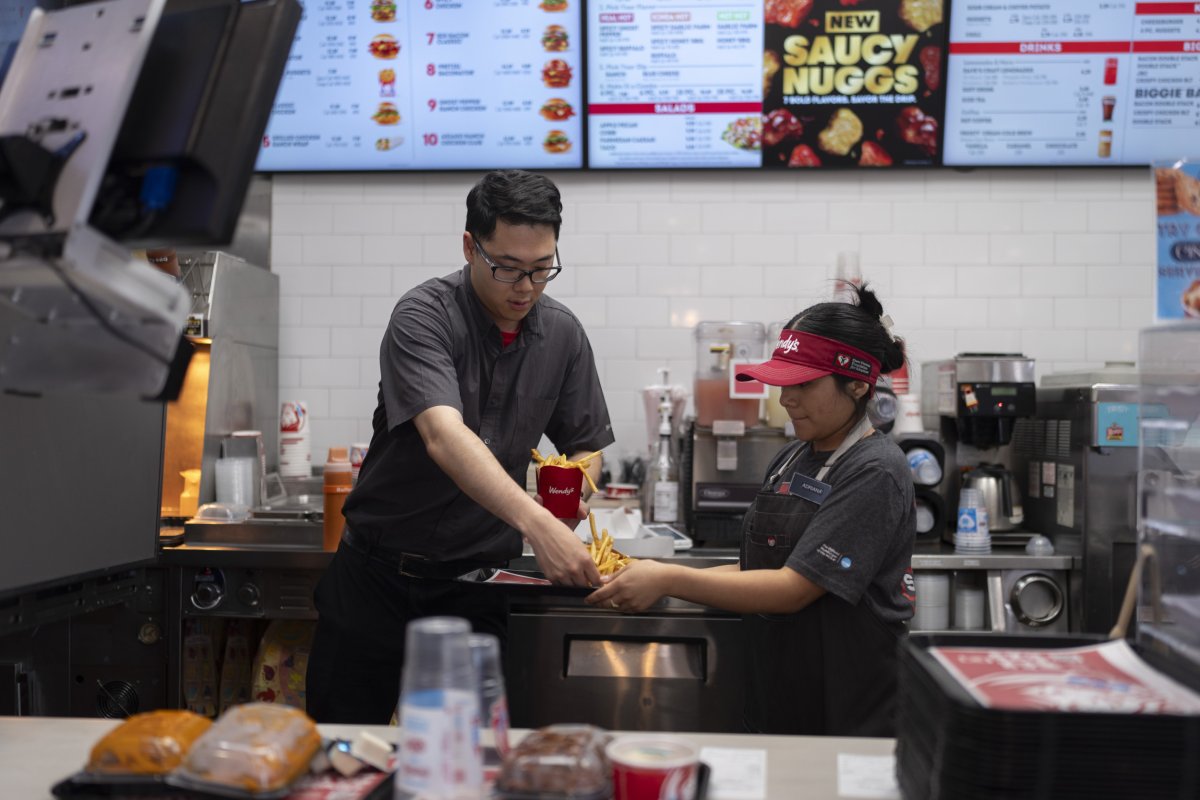In a shift away from progressive policies and towards law-an-order measures, California has voted to reclassify certain nonviolent crimes including shoplifting, as felonies once again.
Voters faced decisions on 10 key ballot measures, including another measure proposing the state's minimum wage be raised to the highest in the country.
Here are some of the key measures voters were asked to consider:
Proposition 36 Makes Repeated Shoplifting a Felony
In response to concerns over rising retail crime, California voters approved a measure reclassifying shoplifting as a felony for repeat offenders and imposing stricter penalties for certain drug offenses, including those involving fentanyl. This new measure also empowers judges to mandate treatment for individuals facing multiple drug-related charges.
The measure represents a partial rollback of a 2014 progressive law that had reclassified several nonviolent offenses, including theft under $950 and certain drug charges, as misdemeanors.

Supporters argue that the initiative is essential to closing legal loopholes that have hindered law enforcement's ability to penalize shoplifters and drug dealers effectively. They believe the measure will strengthen the state's response to the homelessness and drug crises by enabling more decisive action against repeat offenders and drug-related crimes.
"It was clear to us in the last year that this is desperately needed for Californians," said Anne Marie Schubert, cochair of the coalition supporting the measure. "This is a resounding message that Californians are ready to have safer communities."
Opponents, including Democratic state leaders and social justice advocates, contend that the initiative will lead to the disproportionate imprisonment of low-income individuals and those struggling with substance use, rather than targeting organized ringleaders who recruit groups to steal goods for online resale.
"Voters wanted solutions, but they were sold a false promise," said Tinisch Hollins, executive director of Californians for Safety and Justice, which coauthored the 2014 law. "With this initiative passing and potentially threatening hundreds of millions of dollars to stabilize those programs, we're going to be a lot worse off than we were before."

Proposition 32 Is Intended to Increase Minimum Wage
California voters are considering a measure to raise the state's minimum wage to $18 per hour by 2026, up from the current $16 per hour for most workers. As of late Tuesday, the outcome remains undecided.
Notably, fast-food workers received a pay increase this year to at least $20 per hour, and some health care workers now earn a minimum of $23 per hour.
If approved, California's Proposition 32 would raise the state's minimum wage to $18 per hour by 2026, making it the highest statewide minimum wage in the United States. In 2016, California became the first state to enact a $15 per hour minimum wage. Currently, approximately 40 cities and counties within the state have set minimum wages above the statewide rate, with six jurisdictions requiring minimums exceeding $18 per hour as of this year.
Supporters of the California minimum wage measure estimate it would directly benefit around two million workers, including those in hotel and grocery sectors, by raising their pay. Opponents, however, argue that the increase could drive up costs, lead to higher taxes, and force businesses to cut jobs to manage the added expenses.

Proposition 4 Would Unlock $10 Billion for Climate Projects
This measure seeks voter approval to borrow $10 billion for a range of climate initiatives, marking the state's most significant investment in climate action to date.
The largest portion, $3.8 billion, is allocated to upgrading drinking water systems and preparing for droughts and floods. Additionally, $1.5 billion is designated for wildfire preparedness, and $1.2 billion is aimed at addressing the challenges of rising sea levels.
Supporters argue that the measure is essential for helping California adapt to a changing climate, addressing escalating threats including wildfires, water pollution, and extreme heat.
Opponents, however, contend that using bonds is the "most expensive way" to fund these programs, which could instead be covered through the state budget.
Paying off the bond would cost taxpayers roughly $16 billion, with annual payments of $400 million.
Proposition 6 Could Ban Forced Labor Including Use as Punishment for Crime
This proposed amendment would revise the California Constitution to prohibit forced labor in all forms, eliminating the current exception that allows it as punishment for a crime.
As of late Tuesday, the outcome remained undecided, though neighboring Nevada approved a similar measure. Criminal justice advocates have focused on this exemption, raising concerns about prison labor conditions where incarcerated individuals are frequently paid less than $1 an hour for tasks including firefighting, cell cleaning, and cemetery landscaping.
This initiative is part of a broader reparations effort by California lawmakers aimed at addressing historical racism and discrimination against Black Californians. Similar constitutional amendments have been adopted in recent years in states including Alabama, Oregon, Tennessee, and Vermont, removing exceptions that allowed slavery or involuntary servitude as punishment for a crime.
This article includes reporting from The Associated Press




















 English (US) ·
English (US) ·